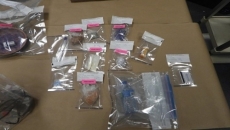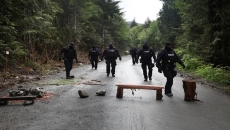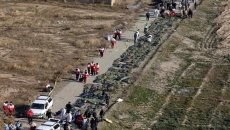British Columbia Premier John Horgan says he is "horrified and heartbroken" to learn of the discovery of a burial site with 215 children on the Kamloops Indian Residential School.
Each child has been forever taken from a family and a community that loved them. This is a stark example of the violence the Canadian residential school system inflicted upon Indigenous peoples and how the consequences of these atrocities continue to this day.
— John Horgan (@jjhorgan) May 28, 2021
The Tk'emlúps te Secwépemc First Nation said new ground-penetrating technology was able to show the remains of the children, whose deaths are believed to be undocumented but are known within the community.
The discovery is a tragedy of "unimaginable proportions" and highlights the violence and consequences of the residential school system, Horgan said in a statement on Friday.
"I honour Tk'emlúps te Secwépemc as they grapple with this burden from a dark chapter of Canadian history and uphold their commitment to complete this investigation over the coming weeks, bringing to light the full truth of this loss," he said.
The National Truth and Reconciliation Commission has records of at least 51 children dying at the school between 1914 and 1963.
The commission noted in its 2015 report that officials in 1918 believed children at the school were not being adequately fed, leading to malnutrition.
The head of the First Nations Health Authority said the group will be providing mental health and trauma support to community members as the search continues.
Richard Jock, the authority's CEO, said COVID-19 has made it difficult for people to gather and mourn the news.
He said the legacy of colonialism leads to modern-day trauma and health issues in Indigenous communities.
“This particular event may be seen as historical but it’s also a continuous trend I would say of this power imbalance, if you would, that creates these issues for First Nations people.”
The Union of B.C. Indian Chiefs said the discovery is a reminder of the genocide committed by the Canadian government.
"There are no words to express the deep mourning that we feel as First Nations people, and as survivors, when we hear an announcement like this," said Grand Chief Stewart Phillip in a statement. "These were children — all belonging to a family and community, and a Nation — who were forcibly stolen from their homes under the authority of the Canadian government, and never returned."
Chief Don Tom, the union's vice-president, noted the first-ever meeting of the Union of B.C. Indian Chiefs was held on the former grounds of the Kamloops residential school in 1969.
B.C. Solicitor General Mike Farnworth made a brief statement Friday about the discovery at the former residential school at a news conference on a separate announcement.
"I’d like to take a moment to acknowledge the Tk'emlúps te Secwépemc people who are dealing with the continuing tragedy and impact of the residential school system and the dark chapter that is in their nation’s history and our nation’s history and our thoughts are with them today."






